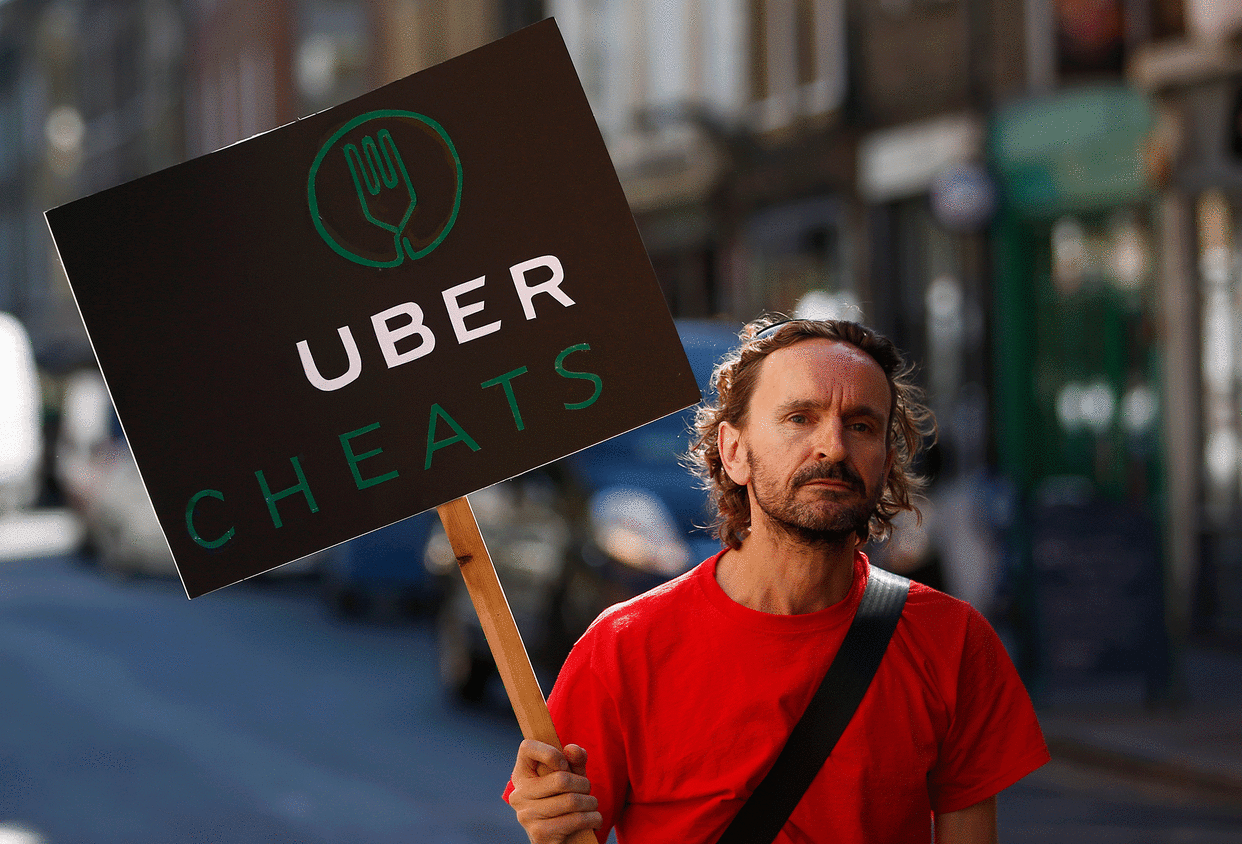Brexit: Rise of the gig economy in the UK fuelled decision to leave EU, MPs told

Many people voted for Brexit because of a “fourth industrial revolution” that has seen British workers’ rights undermined, MPs were told on Tuesday.
The explosion in the gig economy and part-time agency work since the 2008-9 financial crisis has meant the UK is “hurtling towards casualisation of labour and society has a price to pay,” Tim Roache, general secretary of the GMB union said.
Unemployment dropped this month to equal its lowest level since 1971 but many of those jobs are insecure, leaving increasing numbers of workers without rights such as sick pay or holiday pay.
Speaking to the business, energy and industrial strategy committee, Mr Roache asked: “How can you begin to plan your life? How can you know that you’ll have enough work to put a meal on the table for your kids, to pay the bills, let alone to save for a mortgage or get a roof over your own heads?”
The fear and worry that comes with this caused large numbers of people to vote to leave the EU, he said.
“For some years, workers have felt that their lot is getting worse and worse and worse, and with this drive towards casualisation they feel even more disenfranchised,” Mr Roache said.
"They feel like you as politicians don’t understand their challenges, you don’t look like them, sound like them or have the same life experiences as them.
“So they look for someone to blame. They think: 'If [migrants] weren’t over here, my employer would treat me well like they used to; I’d be able to get to the doctors tomorrow, not next week; My child wouldn’t be in a class of 40'.”
In the same evidence session, Jennifer Hardy, finance director of Transline, the agency that paid Sports Direct workers less than minimum wage, promised to give workers what they are owed.
In August last year, Transline first agreed to pay around £1m in back pay after it emerged it had underpaid agency staff. However, Steve Turner, assistant general secretary of the Unite union, told MPs on Tuesday that Transline has so far failed to fulfil its promise.
Mr Turner said: “Transline have refused to pay the back payment for the non-payment of national minimum wage for the period of employment that employees had before Transline took over the contract. So they are refusing to honour the transfer of undertakings regulations.
“This is a huge issue. This is hundreds and hundreds of pounds for thousands of workers, where Best Connection, the other agency, has honoured the agreement and paid in full. Sports Direct has paid in full. But one agency, Transline, has decided it’s not going to do that.”
The payments are to be backdated to May 2012 and could be worth up to £1,000 for some workers.
The parliamentary evidence session on the future of work comes as pressure continues to mount on companies relying on casual labour.
On Monday, law firm Leigh Day announced it was representing 200 self-employed drivers who work for takeaway courier, Deliveroo. The workers are taking legal action against the company, demanding employment rights including the National Living Wage and holiday pay.
Santander also faced criticism this week after it emerged that it offered some staff a contract guaranteeing just one hour of work per month.


